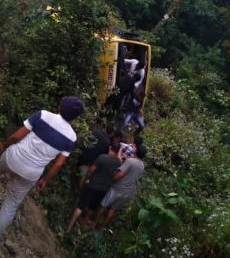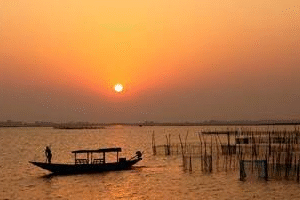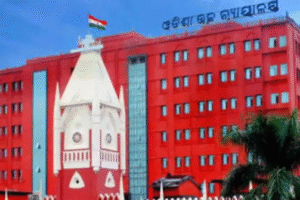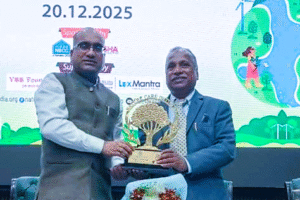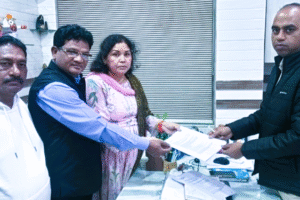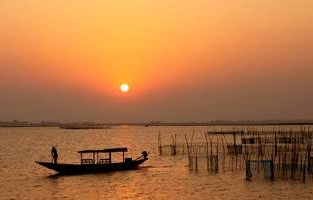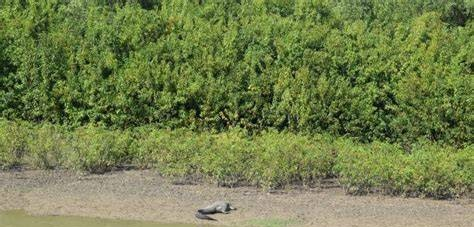
Odisha’s Bhitarkanika national park records rise in estuarine croc nesting sites
Bhubaneswar, July 15 (UNI) A total of 116 nesting sites of endangered estuarine crocodiles were spotted by wildlife staff at the marshy wetland sites of Odisha’s Bhitarkanika National Park, thus re-establishing Bhitarkanika as the largest habitat of these animals, officials said on Tuesday.
There was a slender rise in nesting sites this year, as 114 sites were recorded in 2024. The nesting sites are indicative of the fact that Bhitarkanika is an ideal habitat of saltwater or estuarine crocodiles.
The Kanika wildlife forest range in the core area of the national park logged the maximum sighting with 104 nests. Last year, only 102 nests were spotted at the range, said Manas Das, assistant conservator of forest.
Female crocodiles lay 50 to 60 eggs, and the hatchlings usually emerge from the nests after a 70 to 80-day incubation period Bhitarkanika is said to house 70% of India’s estuarine crocodile or saltwater crocodiles, conservation of which was started way back in 1975.
The saltwater crocodile population in Bhitarkanika has increased manifold from 96 in 1975 to 1,826 so far.
Bhitarkanika, a Ramsar international wetland site, is one of the richest storehouses of mangrove genes. Researchers have come across 11 of the 70 mangrove species, which are facing the threat of extinction in the world, in Bhitarkanika.
Adequate conservation measures by the state forest department have led to a systematic rise in the number of these reptiles over the years, claimed officials.
The wildlife sanctuary continues to remain out of bounds for tourists and visitors in view of the global pandemic. Every year, the sanctuary remains shut May 31-July 31 to ensure disturbance-free nesting of crocodiles, added the official.
Incidentally Odisha is the lone state in the country where three species of crocodiles — saltwater, gharial and mugger — are found inhabiting the river systems.
The State had launched the conservation programmes for all three crocodilian species — gharial, mugger and estuarine crocodiles in 1975, which no other state did. Overall, the recovery of the species that were threatened, to say the least, has been on an impressive scale in general and in saltwater crocodiles in particular, crocodile researcher Dr Sudhakar Kar said.
Crocodiles are also an important part of the ecosystem and help keep the riverine ecology clean and guard mangrove forest from tree cutters and poachers, as locals are scared to venture into the mangrove forest because of presence of crocodiles in the swampy patches in the forest, added Dr Kar, who earlier officiated as the research officer in the forest department.

